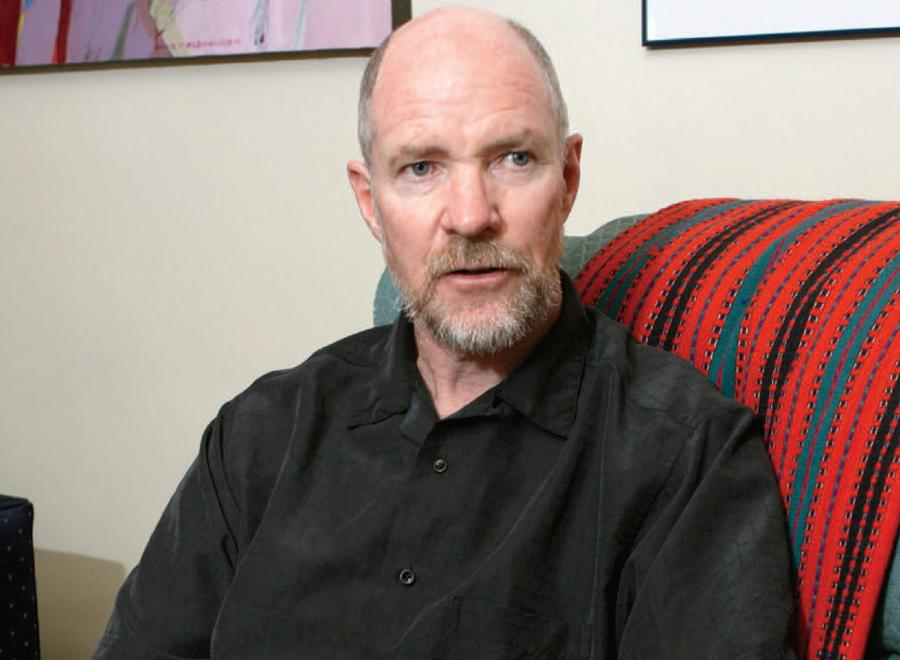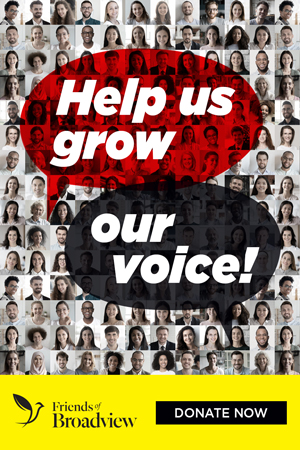Lawrence Scanlan selected a dozen charities, spent a month volunteering with each one, then wrote the book A Year of Living Generously. The Kingston, Ont., author sat down with Larry Krotz to discuss what he learned about givers and receivers.
LARRY KROTZ: Many people give money or volunteer for good causes. What motivates us?
LAWRENCE SCANLAN: Some of it is a softening that takes place as we age. We think, “What can we do to make the world a better place?” We start thinking of others, not just ourselves. Also, we know how greed in some ways defines our society. Look at the salaries commanded by actors, athletes, CEOs. When you make that kind of money, there’s pressure to give some of it back.
LK: All the great religions urge charity, yet charity is not the preserve of people of faith. What motivates non-religious people?
LS: Even people who don’t believe in the Divine still believe in a moral order. It’s almost a biological imperative. Before she died, [journalist and activist] June Callwood said, “We are all of a tribe, and we are hard-wired to connect to one another.”
LK: Are we hard-wired to share? Was sharing part of a survival mechanism that was necessary as we evolved?
LS: Psychological studies show that when you even think about doing something for others, it registers in the pleasure zones of the brain. Also, we have to co-operate to survive. I think of those Chilean miners trapped underground; if one of them tried to acquire all the food or was belligerent with the others, they wouldn’t have survived.
Whether there is a belief in God behind that co-operation I don’t know, but what matters is that we have to get along. The hunter-gatherer societies had a built-in means of sharing. A hunter who hoarded his meat wouldn’t have much status. The potlatch formalizes this. I encountered similar practices in the fishing villages of Fiji and in Newfoundland. We could learn from those societies what it means to be connected to your community and to share the wealth.
LK: My mother used to say, “It’s too easy to give money. You have to give of yourself.” Was she right?
LS: Yes. I don’t discourage people from giving money, but June Callwood, again, talked about how every time you drop a loonie in the cup, spend some time talking with that person. We tend to go around people who look poor, when what they want is to be treated with humanity.
LK: Yet money is surely important. What is your reaction to the billionaires Bill Gates has lined up to give substantially of their fortunes? And is there a downside to charity becoming the preserve of rich people?
LS: The financial value of the work done by volunteers in Canada each year is something like $17 billion, so it actually dwarfs the financial contributions of rich people. On the other hand, the Gates Foundation is the biggest the world has ever seen. The downside of the very rich controlling charities is that the tail wags the dog; they set the agenda. Many rich philanthropists want to protect the status quo because the status quo has served them very well. It’s fantastic that Bill Gates and Warren Buffett are using their enormous wealth for good causes, but why did it occur to them when they were 60 and not when they were 25? North American society allows people to acquire vast amounts of money, then they reach a certain age and say, “Oh, now I’m going to give some back.” They get to play Santa Claus. I believe that the greatest generosity is anonymous generosity.
LK: You write in your book that you developed an antipathy toward the word “charity.” What do you mean?
LS: [Swedish essayist] August Strindberg said that all charity is humiliating. I debated whether he was right. Then the director at the St. Vincent de Paul Society here in Kingston told me about how poor people often have to lie to get things. In that way, I think charity is demeaning. You can’t have all the power on one side; if you always have your hand out, how can you feel good about yourself? On the other side, if you’re always the one giving, that’s not right either. A homeless man found my sister’s stolen wallet and returned it to her; we gave him money to enrol in a course. There was reciprocity, an exchange.
LK: Are you a better person for your experiences?
LS: Certainly a different person. I was reminded that there is real suffering out there. When you are homeless, you are forced to go from one place to another for food or a bunk. How humiliating to have to beg, to ask for a bar of soap, to get on a bus and head to the next horrible shelter. It’s awful. And it’s such hard work. Homelessness in our otherwise rich country makes me more angry than anything else I researched for this book.
LK: Are the people you helped better off due to your efforts?
LS: Some are. We managed to get equipment for a radio station in Senegal. But the questions they asked me over and over in Africa and Central America were: Will you stay connected to us? can we count on you a year from now?
LK: A lot of charity described in your book involves volunteers doing things governments might properly do. If government did its job, what would happen to charity?
LS: There would always be a need for volunteers. But the question I asked myself is, how do we close the gap between rich and poor? Scandinavian countries are heavily taxed, but they also happen to be where people are the happiest and the healthiest. We keep on looking to the tax-averse American model. In this country, there used to be a sense of common purpose, a sense that when we are down on our luck, there is a safety net. We’ve been dismantling that net for decades. We’ve got all this volunteer labour, we have rich people doing their thing — and we’ve got governments increasingly pulling out.
Church-based out-of-the-cold programs were created as a stop-gap to take pressure off the homeless shelters; now these are central to the strategy. And while church volunteers are getting burnt out, government is off the hook. If people want to effect change, they have to pressure government. As I’ve aged, I’ve become less the political activist and more the volunteer. The political engagement that used to define me has largely disappeared. Good and generous people are dropping off cans to food banks, but why aren’t we pounding on the mayor’s desk?
LK: To me, the pitfalls of charity are the assumptions we might carry when we go out to “do good,” plus the imbalance of power. How should volunteers deal with those?
LS: It’s extremely complicated. In Africa, if you’re a white person, you’re seen as either a tourist or an NGO worker; either way, you have money. People approached me on that basis, and I resent that they are put in that position. At the food bank, I was counselled not to make assumptions about people. When I did so, I was clearly wrong. One of the homeless men, for example, had a PhD in psychology. My advice? Engage with as much discretion as you can muster; treat people fairly; and don’t prejudge anyone.
***
This story first appeared in The United Church Observer’s December 2010 issue with the title “‘I believe that the greatest generosity is anonymous generosity.’”


Comments